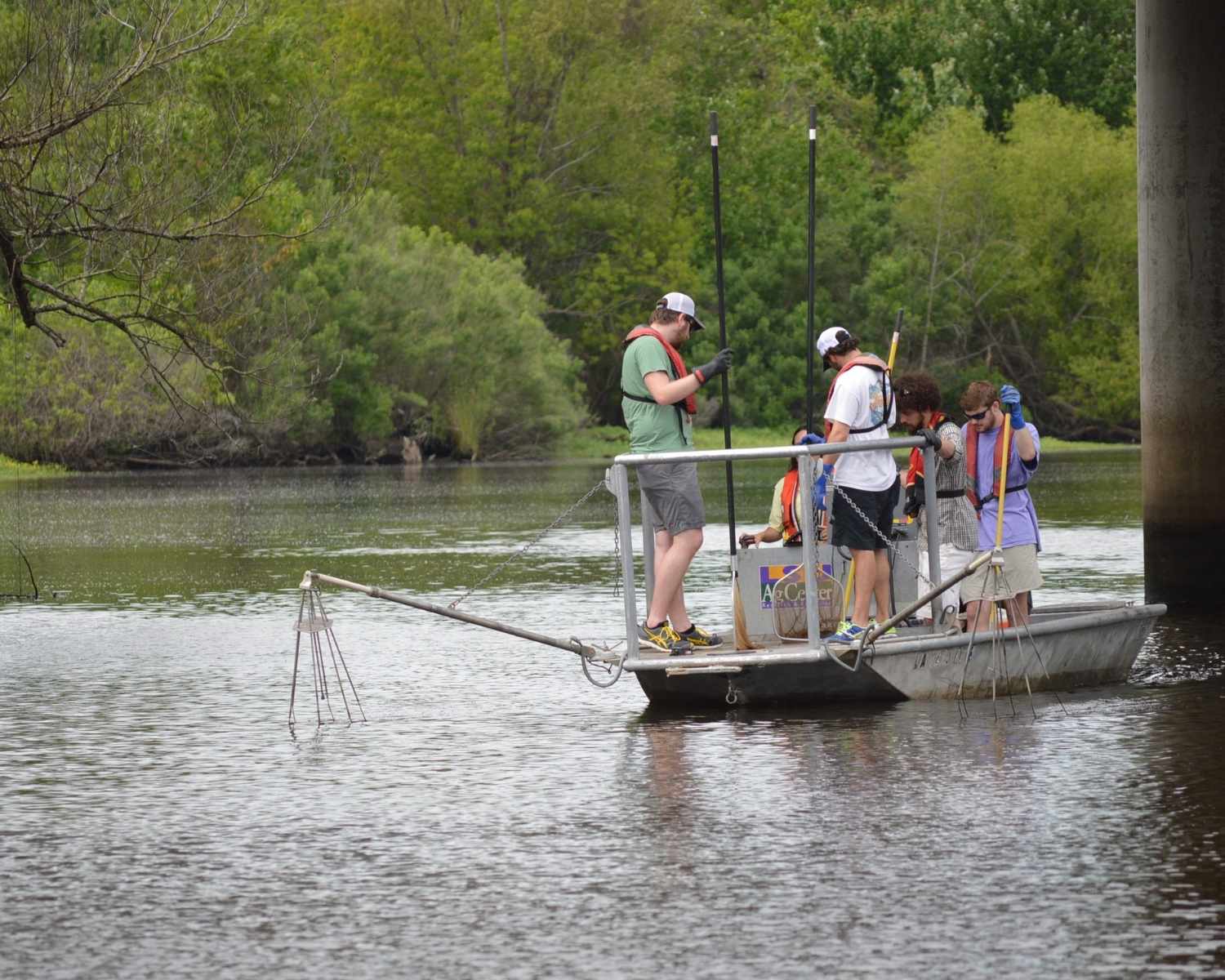Natural Resource Ecology & Management
What is Natural Resource Ecology & Management?
Whether you live in an urban or rural area, the health of your ecosystem directly affects your own wellbeing. Natural Resource Ecology and Management is focused on creating the best possible environment for plants, animals, and people. Opportunities for study include wetlands, wildlife conservation, aquaculture, forestry, and habitat management.
Why study Natural Resource Ecology & Management at LSU?
This program differs from traditional biology programs by integrating a hands-on approach to learning. Students in this program can expect field experiences in forests, wetlands, and on the water. Importantly, unlike similar programs, the focus will be on habitats, animal populations and communities, people management, and less on individual animals in this program.
Concentrations
Students in the B.S. in Natural Resources Ecology and Management have nine options for specialization within the fields of animal populations management, habitat/ecological conservation and restoration, forest management, and pre-vet studies.
Louisiana is home to a number of endangered species that need human intervention in order to survive. Students enrolled in this concentration will learn the habitats and genetics of rare and threatened animals to ensure the survival of species.
Students will learn the principles of forestry and natural resource management, so they can conserve and restore woodlands, marshes, and other natural landscapes.
This concentration will prepare students for managing, conserving, and improving populations of aquatic life in the wild. Students will also gain insight into the commercial aspects of professional fisheries and aquaculture.
This concentration allows students to explore the complex challenges of managing forests for various uses. Specifically designed to prepare students to become certified foresters, this concentration includes eight weeks of study at Lee Memorial Forest.
In this concentration, students will prepare for a career as a wildlife or zoo veterinarian. These veterinarians typically work for state or federal agencies, non-governmental environmental organizations, or zoos and aquariums.
This concentration includes courses required for application to the LSU School of Veterinary Medicine.
Watersheds are increasingly becoming the primary unit for resource management. There is an increasing trend that employment opportunities in agriculture, forestry, environmental science, and other related areas are often preferably given to those graduates who earned training and hands-on experience in watersheds, water quality, and aquatic science.
Louisiana has over 3,000,000 square miles of wetlands that are home to fish and other wildlife and help maintain the quality of our water. Students will learn the intricacies of this delectate system and methods to conserve this valuable resource.
With the variety of animals that are native to Louisiana, it is no wonder that the state is known as the Sportsman’s Paradise. In this concentration, students will learn how to protect and maintain animal populations that are of great ecological importance to the environment.
Students will learn about the management of forests, wetlands and other habitats to promote wildlife. The two areas of focus available in this concentration are in wetland wildlife habitats and forest management. This concentration includes eight weeks of study at Lee Memorial Forest.
Career Paths
A degree in renewable natural resources offers a wide range of career opportunities you can pursue after graduation. Whether you want to spend your day in the field or in a lab, or if you have your sights set on pursuing a graduate or veterinarian degree - renewable natural resources provide you with the flexibility to choose your own adventure beyond LSU.
Some Career Opportunities Include:
Aquaculturist
Animal/Wildlife Educator
Conservation Biologist
Conservation Officer/Game Warden
Ecological Restoration Specialist
Environmental Educator
Environmental Lawyer (with additional education)
Forester/Urban Forester
Habitat Restoration Biologist
Park Ranger
Resource/Range/Property Manager
Wetland Scientist
Wildlife Biologist
Wildlife and Fisheries Ecologist
Wildlife or Exotic Animal Veterinarian (with additional education)
natural resource ecology and management pathways
Companies hiring LSU Natural Resource Ecology & Management Graduate

Learn more about the School of Renewable Natural Resources
Program Details
Department: School of Renewable Natural Resources
College: LSU College of Agriculture
Location: LSU, Baton Rouge
DEGREE TYPES
Bachelor's of Science
Degree plan
B.S. in Natural Resource Ecology and Management (4-year plan courses)
MINORS
Aquaculture Minor (Courses)
Fisheries Minor (Courses)
Forestry Minor (Courses)
Wildlife Ecology Minor (Courses)
undergraduate contact
Dr. Mike Kaller
Professor and Coordinator of Undergraduate Studies
mkalle1@lsu.edu
225-578-0012